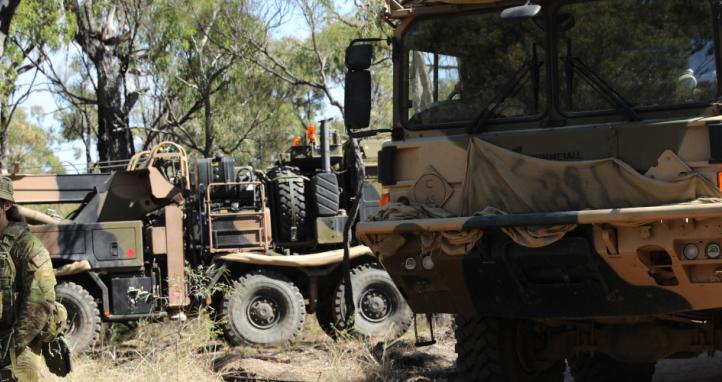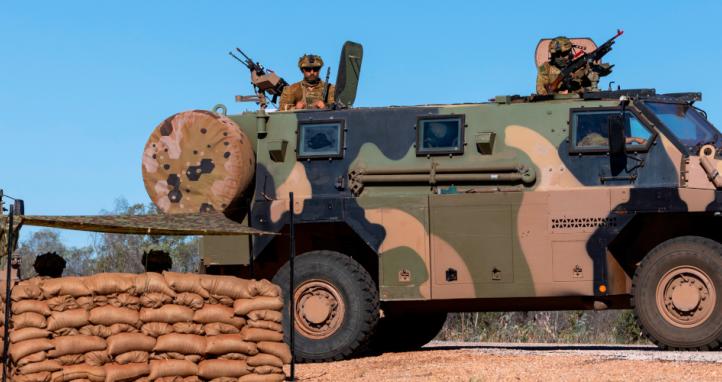After returning from a short but highly rewarding domestic operation, I found myself wondering if I would ever experience a career high that would surpass what I had just been through. I wondered if I had just passed the peak of my career, but there was no way I could tell. I looked at my potential future in Army and realised that I was no longer excited for what was ahead of me. I had spent my career focusing on achieving the next goal. But it wasn’t until I returned from that operation that I was able to look up and see where I was heading.
Don’t get me wrong; my career was great. It didn’t follow the path I expected, but the path it took was far greater. Although my career still had great potential, the path I was on was not what I wanted for myself or my family. It was at this point that I decided to take control of my future for the first time in my life. While some people aren’t fortunate enough to be able to choose when they leave Army or whether they leave at their peak. I feel I was fortunate enough to do both.
Here are my five tips following my transition from full time service:
- The big wide world isn’t as scary as it may seem. Transitioning was surprisingly easy and not too dissimilar to many of my domestic postings. I know this is not always the case and acknowledge that I left under my own terms which made the transition much easier mentally. A key thought given to me by a close friend when I was considering transitioning was this: ‘those who are successful in Army are likely to be successful anywhere they go’. Back yourself.
- Prepare yourself for transition, make plans, then commit and execute. No transition is perfect, and the grass is seldom greener on the other side. But different shades of green can be good for you and your family. Don’t accept advice from people who haven’t experienced ‘the other side’. They will project their own fears of the outside world onto you, most of which are simply not true. Conversely, those already out will give you a real sense of what it’s like to be a civilian, the good and the bad. Look outward, not inward. Once you have made the decision, plan the transition well and commit to your plan. We are all trained to develop successful plans and execute them. This is no different.
- Recognise and appreciate what Army has given you. Whether it be life experience, financial reward, mateship, qualifications, or maturity, be thankful for what Army has given you. Concentrate on the positives of your service, not the negatives. Take what Army has given you and use it to contribute to society as a civilian. Again, Army has set you up to succeed.
- Adjust, but find a way to stay connected. It’s important to accept that the civilian workforce is very different to a military workforce. You need to adjust to this new environment. Adapt and overcome. At the same time, if you are still able to serve in some capacity and provide value to the ADF, I recommend you do it. The ADF is likely going to need to draw on your expertise at some point in the future. Don’t see reserve service as a hindrance. The Total Workforce System provides flexibility to those that can’t serve full time. Use the system to its full potential.
- For leaders – Support your people when they transition. People remember Army by their last impression, not their first. Celebrate with your people for moving onto something new. Do not be bitter. Send people out into the world knowing they can come back to full time service and make them want to recommend Army as a career to others. Make them want to serve in a part-time capacity. Ultimately you are recruiting for other Service Categories, not losing someone. This is where we succeed or fail in the retention battle. Your actions and words determine the outcome.
I’ve spoken to many of my peers that have left Army in recent years. Each of them say similar things about transitioning. They realise that military service was tough. It’s difficult to quantify the physical and emotional demands that serving has on you and your family until you leave. Experiencing a ‘normal’ civilian life, you realise the sacrifices you made when you served. Although civilian employment often comes with similar challenges experienced in a military career, the difference is the level of sacrifice required to maintain a successful career in each.
Regardless, Army moulds us into who we are. It gives us significant experience to take with us in our future endeavours. Use what you have gained from military service and when you decide to transition, make use of that experience. We are valuable within society. Don’t let anyone tell you otherwise.









